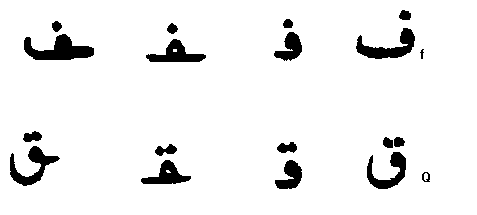Learn the Arabic language
Importance of Learning Arabic
Because it is the language of the Quran, maintains its grammatical rules, and is closely associated with Islam, Arabic is one of the most significant languages in the world. It is highly sought after, particularly by foreigners who want to comprehend Islamic texts and enjoy its beauty.

Cultural and Linguistic Significance
Arabic has a major impact on European languages and advances culture overall. Its vocabulary and grammar are characterised by clarity and lucidity, which makes it a special and miraculous language.
Arabic as the Language of Islam
Learning Arabic is so significant because it is the language of the seal [Prophet Muhammad] and the prayer doesn’t work without it. Thus, it is one of the semantic and supreme languages and one of the ancient languages.
Learn Arabic Tajweed
https://www.youtube.com/watch?v=llfdgox8beA
What is Classical Arabic?
All Arabic dialects are unified by classical Arabic, which is required to be taught in schools. It is the formal language required for accurate recitation of the Quran.
Importance of Tajweed in Quran Recitation
The rules of proper pronunciation when reciting the Quran are known as Tajweed, and they are essential to getting closer to Allah. Learning Quran Tajweed makes it easier to distinguish between correctly and incorrectly pronouncing words in accordance with Quranic guidelines.
Prerequisites for Learning Tajweed
To learn tajweed, the students should know all the Arabic letters and vowels and be able to read and differentiate between them. So, it considers as an elementary level. The students encouraged to learn Arabic terms and definitions from a book of tajweed, which will contain an introduction to the science of tajweed
Tajweed Learning Resources
Video Tutorial: Learn Arabic Tajweed
Additional learning aids include tajweed books covering terminology and science introductions.
How to Learn the Arabic Language

Practical Steps to Learn Arabic
- To improve your fluency, speak classical Arabic regularly using traditional vocabulary.
- To learn proper pronunciation and sounds, listen to conversations in Arabic.
- Reading consistently improves fluency.
- Learning the Quran and its interpretation is a great way to improve comprehension and commit Arabic words to memory.
Teaching the Arabic Language

The Significance of Teaching Arabic
Teaching Arabic is a noble task as it is the language of paradise’s inhabitants and a language of unmatched accuracy and meaning, praised even by linguistic experts.
The Muslim’s Duty Toward Arabic
Since Arabic was revealed to Prophet Muhammad (PBUH), true Muslims should value, protect, and disseminate it as a religious and cultural treasure. Faith, intelligence, and identity are strengthened by a love of Arabic.

Arabic Language and the Intellectual and Spiritual Aspect of the Muslim
Connection Between Arabic and Muslim Identity
A Muslim’s understanding of the Quran, the Prophetic traditions, and cultural heritage is deepened by proficiency in and love for Arabic, which promotes spiritual development.
Teaching Arabic to Non-Native Speakers
Sincere and qualified teachers help spread awareness of Arabic’s beauty and aid in the global dissemination of Islam by teaching it to non-native speakers.
The Study of Arabic
Importance of Arabic Education
Learning Arabic improves vocabulary, makes speech more understandable, and helps one gain a precise understanding of Islamic scripture and jurisprudence.
Arabic as a Scientific and Ancient Language
For jurists and scholars to accurately interpret Islamic law, Arabic is a unique scientific language with a sophisticated vocabulary.
Arabic’s Role in Identity and Debate
Studying Arabic sustains cultural identity, refines argumentation skills, and supports moral and religious values.
Arabic as a Global Language
Spoken by over 1.25 billion globally, Arabic connects Islamic heritage and allows access to fourteen centuries of cultural richness.
The Concept of Knowledge in Education
The concept of knowledge in [education] :
![The concept of knowledge in [education]](https://alazhararabiconline.com/wp-content/uploads/2018/08/madarsa-300x180.jpg)
Definition and Sources of Knowledge
Quranic verses that emphasise learning make it clear that Allah is the ultimate source of knowledge, which includes information, skills, and experience acquired through intellect and sensory perception.
Using Knowledge in Learning Arabic
Integrating Knowledge and Arabic Learning
Learning Arabic is improved by comprehending Quranic verses through introspection. Understanding Islam is crucial for tackling today’s social and intellectual issues.
The Path of Seeking Knowledge
Following the Prophet’s teaching, the acquisition of knowledge facilitates the path to Paradise and envelops the learner with divine mercy.
Sheikh Al-Bukhari(may Allah have mercy on his soul) said: ” The door of knowledge is above and before saying and doing because Allah says, ‘So know that there is no God but Allah. ” So Allah starts with knowledge, and that scientists are the inheritors of the Prophets.
The Prophet (Peace be upon him) said, “He who takes a path upon which to seek knowledge. Allah makes the path to Paradise easy for him.” Whoever seeks knowledge and studies it among himself. The tranquility will descend upon him and will envelop him in the mercy of Allah and surround him by the angels.
Frequently Asked Questions
1. Why is learning Arabic important?
Arabic is the language of the Quran and is closely tied to Islam. It preserves its grammatical rules and is essential for understanding Islamic texts, prayer, and culture.
2. What is Classical Arabic and why should I learn it?
Classical Arabic unites all dialects and is the formal language used in schools. It is necessary for accurate Quranic recitation and deepens comprehension of the sacred texts.
3. What is Tajweed, and why is it important in Quran recitation?
Tajweed encompasses the rules of correct pronunciation during Quran recitation. Learning Quran Tajweed helps Muslims recite properly, drawing closer to Allah.
4. What prerequisites are needed to learn Tajweed?
Students should know the Arabic letters, vowels and be able to differentiate sounds. This foundational knowledge is critical before studying Tajweed rules.
5. How can I effectively learn Arabic language skills?
Speak Classical Arabic regularly using traditional vocabulary, listen to Arabic conversations to master sounds, read consistently to improve fluency, and study the Quran with its interpretation for vocabulary and comprehension.
6. Why is teaching Arabic considered a noble and important task?
Teaching Arabic preserves the language of paradise, reflects linguistic perfection, and strengthens Muslim identity by connecting learners with the Quran and Islamic traditions.
7. How does Arabic influence a Muslim’s intellectual and spiritual development?
Proficiency and love for Arabic deepen understanding of the Quran and Prophetic traditions, enhance cultural heritage, and foster spiritual growth.
8. What role does Arabic play in Islamic education and jurisprudence?
Arabic is a scientific and ancient language essential for jurists and scholars to interpret Islamic law precisely and enriches vocabulary for understanding religious texts.
9. How does Arabic connect Muslim identity globally?
Arabic is spoken by over 1.25 billion people worldwide, linking Islamic heritage and providing access to over fourteen centuries of culture and knowledge.
10. What is the significance of knowledge in learning Arabic?
Knowledge, sourced from Allah as emphasized in the Quran, is essential for effective Arabic learning. Following the Prophet’s guidance, seeking knowledge leads to Paradise and divine mercy.
Register Now